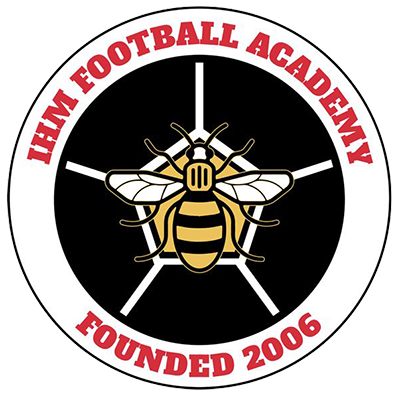What is the value of the BTEC in Sport Performance?
 This is a question that is often asked by parents and prospective student players. The BTEC qualifications can be still relatively unknown outside of the UK and Ireland. However, once you understand their content and value, it soon becomes apparent what a smart choice these qualifications can be for a young person hoping to make it as a professional player and study a sport related degree at a UK or US university at undergraduate level.
This is a question that is often asked by parents and prospective student players. The BTEC qualifications can be still relatively unknown outside of the UK and Ireland. However, once you understand their content and value, it soon becomes apparent what a smart choice these qualifications can be for a young person hoping to make it as a professional player and study a sport related degree at a UK or US university at undergraduate level.
What are BTEC qualifications?
BTEC qualifications have been developed to provide specialist work-related qualifications in a range of areas. The course offered is practical and will give you the opportunity to complete assignments and activities based on realistic situations linked to working in a variety of sports related environments. It will give you a good feel for what it will be like at work as well as developing your communication, numerical, IT, time management and teamwork skills. On completion, you will have enough real knowledge and some experience of the sports industry. This will allow you to explore jobs and training opportunities further. As well as this, the Diploma qualification enables you to apply to university for undergraduate study. There are no formal exams. The work you do during the course counts towards your final Diploma grade. The Level 3 BTEC in Sport Performance is offered at IHM Football Academy at our Manchester city centre school. We are an approved Pearson BTEC provider and so all the tuition and internal validation is conducted in school by IHM staff.
What are the Entry Requirements?
Learners must be over 16 and hold A-C grades in at least 5 GCSEs (including English and Maths) or an equivalent qualification. Candidates who do not hold these qualifications will be assessed on a case by case basis and will be subject to internal assessment to judge whether they have a reasonable possibility of completing the course successfully.
What is the value of the BTEC?
There are 3 qualifications covered at IHM:
| Qualification | Level | Units | Credits | Equivalent |
|---|---|---|---|---|
| BTEC Level 3 Subsidiary Diploma in Sport | 3 | 7 | 60 | 1 A-Level (UK) |
| BTEC Level 3 Diploma in Sport | 3 | 13 | 120 | 2 A-Levels (UK) |
| BTEC Level 3 Extended Diploma in Sport | 3 | 19 | 180 | 3 A-Levels (UK) |
What modules are studied?
The following shows which modules are studied and at which levels:
| BTEC Level 3 in Sport Performance | Sub Diploma | Diploma | Extended Diploma |
|---|---|---|---|
| Modules covered at each level: | The Principles of Anatomy & Physiology in Sport | Sport Coaching | Practical Team Sports |
| The Physiology of Fitness | Sports Nutrition | Current Issues In Sport | |
| Assessing Risk in Sport | Sport Injuries | Instructing Physical activity & Exercise | |
| Fitness Training & Programming | Analysis of Sport Performance | Talent Identification & Development In Sport | |
| Fitness Testing in Sport and Exercise | Rules, Regulations & Officiating in Spor | Sport As A Business | |
| Psychology for Sport Performance | The Athlete’s Lifestyle | Work Experience In Sport | |
| Technical & Tactical Skills in Sport |
Which undergraduate degree courses can be accessed with the BTEC and what careers do they lead to?
With the Diploma a student can progress to a UK university Degree Foundation course for Sport Science or Sport management, marketing or business. With the Extended Diploma, a student could secure a place on the first year of a UK university undergraduate degree course. So, by studying any of the above subjects at university you would be able to follow career paths in sports coaching, sport science, sports therapy as well as business and commercial careers in sport.
What else will I gain?
Skills you will acquire When you study on a BTEC programme you will have the opportunity to develop skills that will support you in both future employment and in study in higher education. These skills include:
- Communication
- Teamwork
- Critical Thinking
- Problem Solving
- Independent Learning
- Organisation and Time Management Skills
- Research Skills
- Presentation Skills
- ICT
In addition to this, by studying a programme grounded in sport you will also gain knowledge and exposure to skills such as:
- Leadership
- Performance Analysis
- Self-evaluation
- Resilience
How is the BTEC delivered?
IHM Head Coach, Matt Lowe, delivers the BTEC in class, which keeps the content relevant to elite footballers and leads to useful practical cross-overs from classroom based theory to training ground practice. During your BTEC course, your tutor will employ a variety of different methods of teaching in order to support your learning. These include:
- Lectures where students are expected to take notes
- Workshops where students research a topic
- Practical training sessions.
- Case Studies where students analyse information and data
- Presentations (individually and in groups) where students demonstrate the knowledge they have gained to peers and/or their tutor
- Role Playing where students collaborate to simulate real life situations
- Visits where students can acquire more experience of the work environment and gather information from new environments outside of the school and training ground
How is the BTEC learning assessed?
As there is no final exam for the BTEC qualification all assessment is made through work you keep in a portfolio. This evidence includes; assignments, presentations, interviews, reports, video, photographs and notes. For each unit you complete, your teacher will provide you with feedback and comments about the quality of the work and the effort you made. All units are given grades which contribute towards your final award at the end of the academic year. All students must meet deadlines for submission of assignments and there is a referral procedure for students who fail to do so. You can receive a Distinction, Merit, Pass or Fail in each unit. Units 1 and 2 are both worth 5 credits. All other units are worth 10 credits. The unit credits are then multiplied by 7 for a Pass, 8 for a Merit and 9 for a distinction. Your final grade will be drawn from aggregate points achieved through the units on the course. At the end of each unit you will receive an explanation of your grade as well as advice on how to improve your work for the next assignment. Each month you’ll also receive a tutorial to assess your learning to date and set broader learning goals.”










